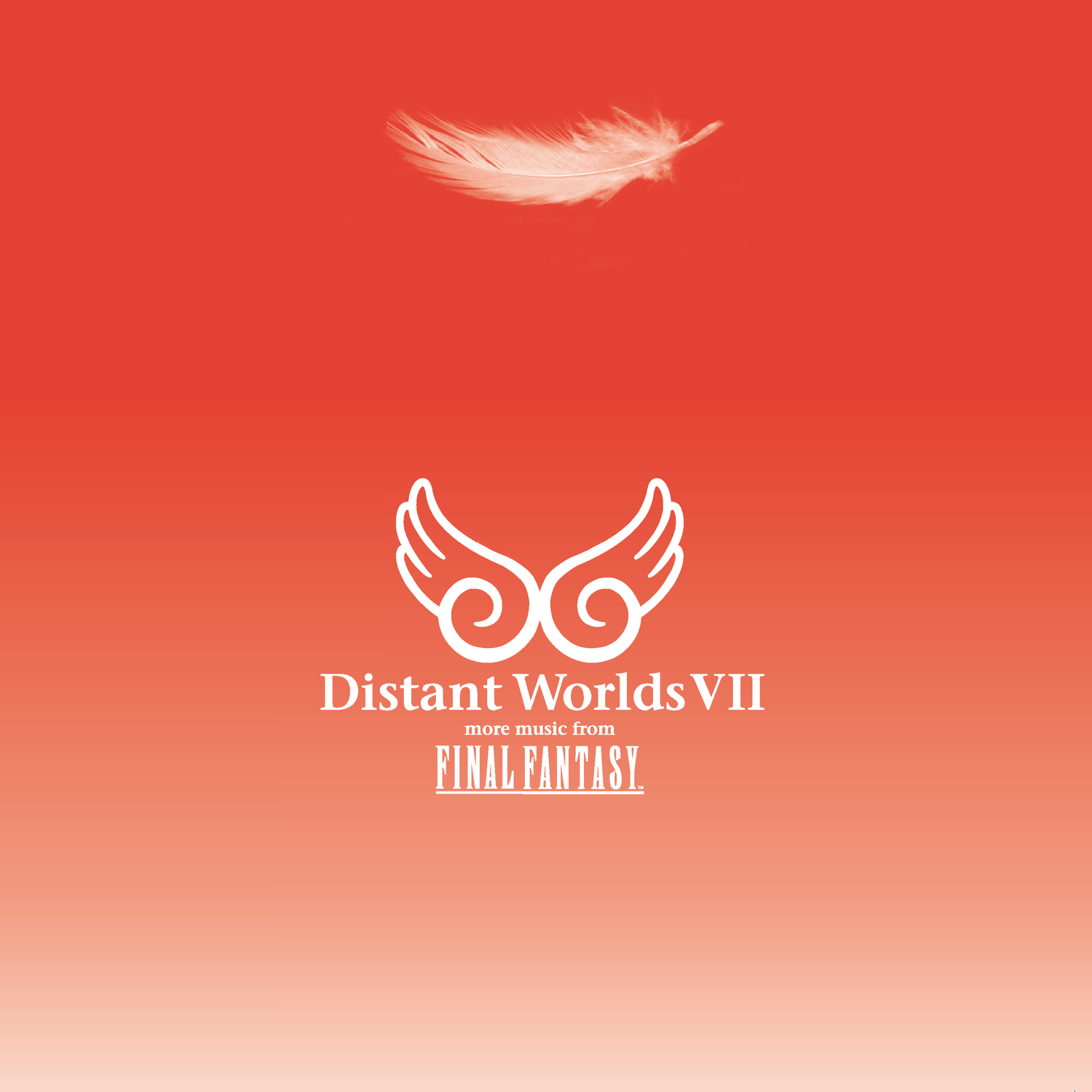It’s been nearly eighteen years since Square Enix released their first Distant Worlds: Music from Final Fantasy album in concert with, well, their worldwide concerts, which have continued near-continuously since. It was both a novelty and a delight to hear so much beloved music freed from the constraints of chiptune and synthetic instruments to be so lusciously arranged and performed by world-class orchestras. Nearly two decades (and four numbered mainline Final Fantasy games) later, it has admittedly become harder to sonically differentiate official soundtracks from Distant Worlds recordings, given the impressive scope and production value of recent FF titles, but this just shows how we’re living in the brightest timeline as far as JRPG music. So get your knowledge of Roman numerals ready: here we go!
Distant Worlds VII (released February 7, 2025) primarily welcomes major themes from Final Fantasy XVI (2023) into the Square Enix music canon and celebrates FFXVI lead composer Masayoshi Soken’s contributions to Final Fantasy XIV and its many expansions (2010-). Distant Worlds VII is a great primer for Final Fantasy music in the 2020s while reinterpreting some old Nobuo Uematsu favorites (and Distant Worlds alum tracks) in ways sure to please longtime fans.
Opener “Away” (FFXVI), theme of the Eikon Phoenix, tears through from terror to triumph with its rolling drums and fiery English(!) choir. Like many of Soken’s tracks (comprising six of the tracklist’s thirteen), the mixing feels enveloping, providing a rawer experience than the versions in their respective games. “Flow” (FFXIV: Endwalker) brings original vocalist Amanda Achen back and pushes her sultry voice to the forefront in production. Later, Achen returns for “My Star,” Jill’s theme from FFXVI. I prefer how the strings here overpower the original version’s piano, and Achen, with less reverb on her voice, assumes leadership of the song. In many ways, Distant Worlds VII is a celebration of the series’ vocal performances. Taking a victory lap from Distant Worlds II, “Suteki da ne” (FFX) highlights original vocalist RIKKI and the way her voice has matured in the past twenty-four years. Swelling strings and swirling flutes replace the PS2 original’s more rock-y sound, giving the classic romance theme the feel of a more elegant waltz for its chorus.
The final vocal performance, and perhaps my favourite track on the entire album, is Emi Evans stepping in for Izumi Masuda in “Distant Worlds,” the ending theme of Final Fantasy XI’s second expansion, Chains of Promathia. Anyone remotely familiar with NieR: Automata (2017) will immediately recognize Evans’ ethereal, siren-like voice. It’s at first jarring hearing her sing in English rather than NieR’s Chaos language, but she quickly lulls you into this grand theme, arguably the series namesake and reappearing for the first time since the very first DW album in 2007. But truly, Emi Evans sounds inhuman and fantastic.
As far as retro representation, “Medley 2004” covers mainstays from Final Fantasy I, II, and III, with my favourites being the Studio Ghibli-esque interpretations of FFI’s “Prelude” and “Town” themes, as well as the horn-heavy interpretation of FFIII’s “Eternal Wind.” This medley was another standout track for me, though I admit I’m biased towards the older music of the series, though another recording of this track has already appeared on 2012’s Final Fantasy Orchestral Album.
The only entry from the SNES trilogy is “Dancing Mad,” the epic, near twenty-minute final battle theme from Final Fantasy VI. It returns from Distant Worlds II and is again a truncated eleven-minute version. The choir mixes well with the rock drums, and though the organ present throughout is well-performed, a real organ doesn’t sound quite as unhinged as a MIDI organ, so the track loses some of its urgency.
Though this setlist doesn’t truly represent the PSX era, 2020’s Final Fantasy VII Remake and 2024’s Final Fantasy VII Rebirth pop in through “Let the Battles Begin! – Battle Medley” and closer “Aerith’s Theme – Return to the Planet Medley.” The former removes some of the industrial elements but adds fantastic choir touches, while “Aerith’s Theme” (also used to close director-composer Arnie Roth’s recent FF7 Rebirth Orchestra Tour Live 2024.09.08 album) is unchanged from recent releases. Still, the arrangement of this classic is likely to become many fans’ favourite rendition.
Aside from Soken and Nobuo Uematsu, BAFTA Fellowship-honored composer Yoko Shimomura’s waltz “Valse di Fantastica” (Final Fantasy XV) tentpoles the album. Soken’s other FFXVI Eikon themes, “Ascension” and “Find the Flame,” are appropriately grand and make full use of every piece of the orchestra, but the real composition that clued me into his immense talent was “The Final Day.” This final boss theme of FFXIV: Endwalker blisteringly compiles the final boss themes of FFXIV’s preceding expansions, filling in bells and horns for the eclectic original song’s guitars. Somehow, it also manages to squeeze the series main theme into the four-minute composition. It’s structurally magnificent, and sure to impress even those who haven’t played the MMORPG while flipping several switches on for those who have dived into Eorzea.
Distant Worlds VII is another victory for Square Enix, and the spoils go to the fans. For anyone intimidated by the huge body of music Masayoshi Soken’s been putting into Final Fantasy XIV and XVI, this album cherry-picks his biggest, most show-stopping work and brings together some of the Final Fantasy series’ most iconic and impressive vocal performances.





